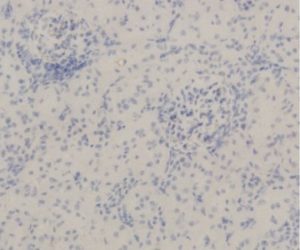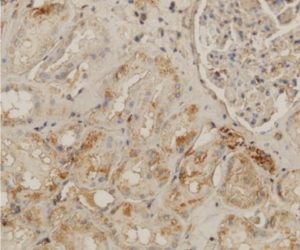
A national medical grant has been awarded to fund research into the use of a next generation antibody therapy to treat Chronic Kidney Disease.
Professor Carol Pollock from the University of Sydney has been awarded $768,000 from the National Health and Medical Research Council (NHMRC) to evaluate the drug, AD-114, being developed by the Australian biotech AdAlta (ASX:1AD).
The project grant, titled “A novel and unique protein i-body for the treatment of Chronic Kidney Disease through targeting CXCR4” will begin on 1 January 2018 and run over four years.
The grant will provide non-dilutive funding to build on the initial work completed by the Kolling Institute and University of Sydney that demonstrated the anti-fibrotic effects of AD-114 in the kidney via a different mechanism of action from currently-approved therapies.
AD-114 has the potential to provide a novel treatment for Chronic Kidney Disease, which currently affects an estimated 1.7 million Australians.
AD-114 differs from existing treatment options and others currently in clinical development as it binds to the chemokine receptor CXCR4. The target CXCR4 is expressed at low levels or absent in healthy tissue and is increased and at high levels in tissue affected by a number of disease states, including fibrosis. AD-114 is the only anti-CXCR4 drug candidate being developed for the treatment of fibrosis.


In both pictures the i-body drug target CXCR4 is stained. The normal kidney cells (left) have no staining, ie CXCR4 is not present. In the diabetic kidney (right) there is significant brown staining, ie the drug target CXCR4 is increased. AdAlta’s i-body AD-114 specifically binds to CXCR4 – and therefore will have activity in diabetic kidney disease and is a promising therapeutic for the treatment of renal fibrosis.
AdAlta’s CEO, Sam Cobb said: “The research collaboration with the Kolling Institute and University of Sydney has provided the opportunity to expand the AD-114 pre-clinical package; demonstrating anti-fibrotic effects across a range of fibrotic diseases, which will be important to potential pharmaceutical partners. We are looking forward to further developing AD-114 for Chronic Kidney Disease, providing an additional clinical application which further enhances the value of AD-114.”
Professor Carol Pollock added “An increase in diabetes and obesity across the world is leading to a massive surge in the number of people diagnosed with CKD. The medical community is looking for alternate treatment options to treat CKD, highlighting the importance of research funding to evaluate new clinical targets. We are excited by the opportunity to further evaluate CXCR4’s involvement and this novel i-body for the treatment of Chronic Kidney Disease”.
